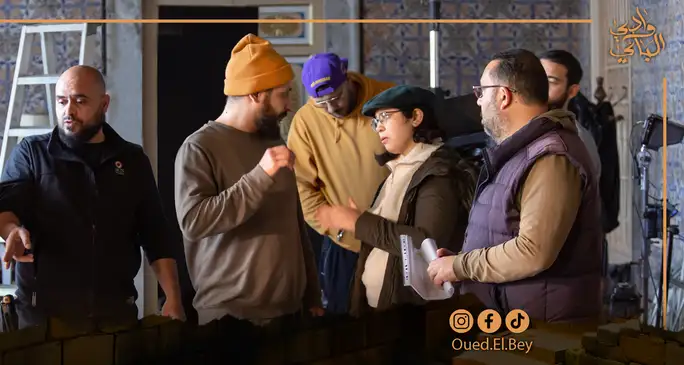Ramadan 2025 in Tunisia has offered a real mosaic of dramatic productions, illustrating the richness of the audiovisual landscape and the diversity of narrative approaches.
Works ranging from historical drama to contemporary soap opera have contributed to fuel passionate debates among viewers, which oscillate between wonder in the face of innovation and attachment to traditional values.
The productions that raise the scene
Some series have been able to captivate the audience by their ability to combine authenticity and modernity. For example, Wadi El Bay is distinguished by his carefully elaborate scenario, retracing family conflicts in a Tunisian historical context.
Likewise, El Rafl offers an ambitious social fresco by exploring the evolution of society through several decades, thus demonstrating a deep understanding of local issues. These successes illustrate how solid narration and neat staging can enhance the Tunisian cultural heritage.
The productions that struggle to convince
Conversely, some soap operas could not meet the expectations of the public. The Zaim, despite a casting of stars, suffers from predictable intrigue and cliché dialogues which degrade the sought -after narrative depth.
Likewise, Fitna was widely criticized for her lack of originality and her tendency to follow fashions without real reflection, thus leaving a feeling of disappointment among viewers in search of authenticity.
The drifts that strike values
Even more worrying, some productions have crossed a sensitive line by mourning cultural and religious principles dear to Tunisian society. Among these, the SA7bek Rajel soap opera has particularly divided public opinion.
If some see it as a daring criticism and a modernization of codes linked to masculinity, many consider that the parodic treatment of essential themes is at the expense of traditional values.
By distorting certain elements of national identity, these works risk compromising the image and integrity of cultural landmarks, thus causing a fracture between creators and a faithful part of the public.
Towards an essential balance
Faced with these marked contrasts, the real challenge for Tunisian television lies in the search for a balance between innovation and respect for traditions. It is imperative that creators continue to explore new narrative forms while making sure not to betray the cultural heritage that defines the soul of Tunisia.
Only an approach that combines modernity and loyalty to values can permanently enrich the Ramadanesque drama, thus meeting the expectations of an audience that is both demanding and attached to its bearings.








